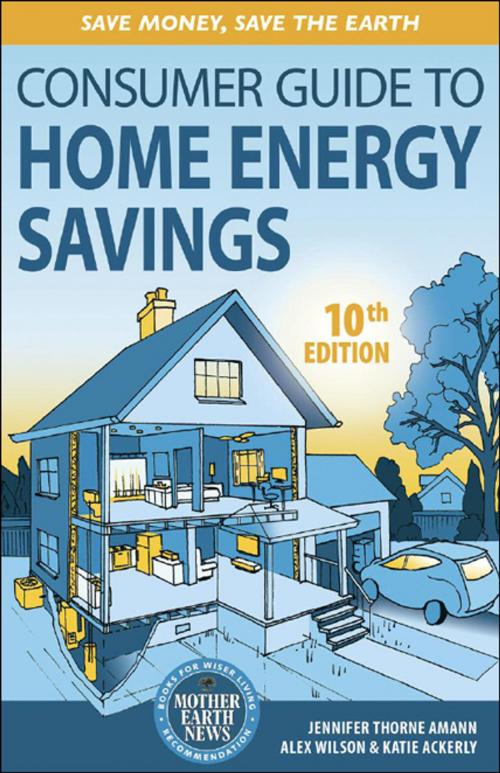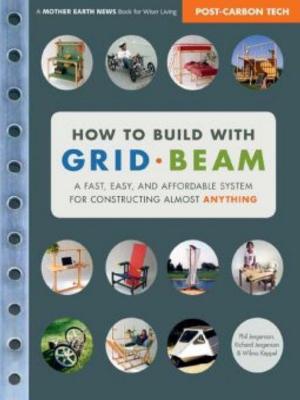The Consumer Guide to Home Energy Savings
Save Money, Save the Earth
Nonfiction, Home & Garden, The Home| Author: | Jennifer Thorne Amann, Alex Wilson, Katie Ackerly | ISBN: | 9781550925203 |
| Publisher: | New Society Publishers | Publication: | November 1, 2012 |
| Imprint: | Language: | English |
| Author: | Jennifer Thorne Amann, Alex Wilson, Katie Ackerly |
| ISBN: | 9781550925203 |
| Publisher: | New Society Publishers |
| Publication: | November 1, 2012 |
| Imprint: | |
| Language: | English |
Increasing the energy efficiency of your home can save you money, help the environment, and enhance your comfort, but how do you decide which improvements are the most beneficial and cost-effective? Completely revised to incorporate the latest developments in green technology, The Consumer Guide to Home Energy Savings is the definitive resource for consumers who want to better their homes performance while reducing their energy bills.Well-organized and highly readable, The Consumer Guide to Home Energy Savings begins with an overview of the relationships between energy use, economics and the environment. Updated and expanded chapters focus on specific aspects of any home, such as heating and cooling, ventilation, electronics, lighting, cooking and laundry, and provide helpful explanations for each, including:• Energy use characteristics • Comparisons between the available technologies• Cost-effective repair and replacement options • Step-by-step guidance for finding the right equipment.This comprehensive resource is packed with tips on improving existing equipment and guidance for when and why to invest in new purchases, as well as a reminder to check local government and utilities for purchase or retrofit grants or incentives. It is a must-read for anyone concerned about reducing both their energy bills and their environmental impact.
Increasing the energy efficiency of your home can save you money, help the environment, and enhance your comfort, but how do you decide which improvements are the most beneficial and cost-effective? Completely revised to incorporate the latest developments in green technology, The Consumer Guide to Home Energy Savings is the definitive resource for consumers who want to better their homes performance while reducing their energy bills.Well-organized and highly readable, The Consumer Guide to Home Energy Savings begins with an overview of the relationships between energy use, economics and the environment. Updated and expanded chapters focus on specific aspects of any home, such as heating and cooling, ventilation, electronics, lighting, cooking and laundry, and provide helpful explanations for each, including:• Energy use characteristics • Comparisons between the available technologies• Cost-effective repair and replacement options • Step-by-step guidance for finding the right equipment.This comprehensive resource is packed with tips on improving existing equipment and guidance for when and why to invest in new purchases, as well as a reminder to check local government and utilities for purchase or retrofit grants or incentives. It is a must-read for anyone concerned about reducing both their energy bills and their environmental impact.















